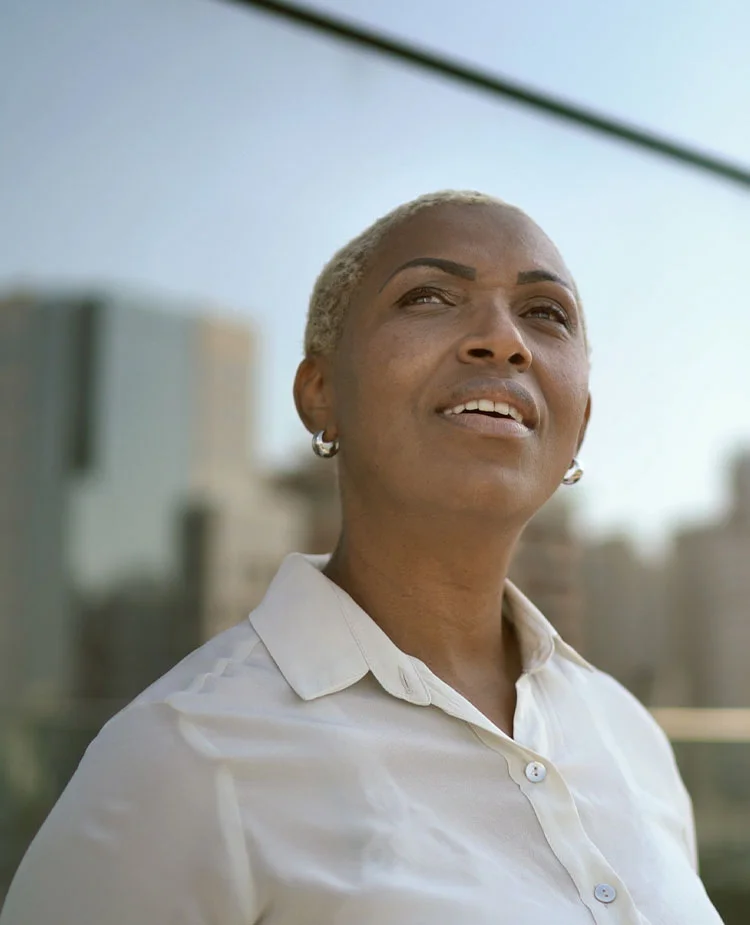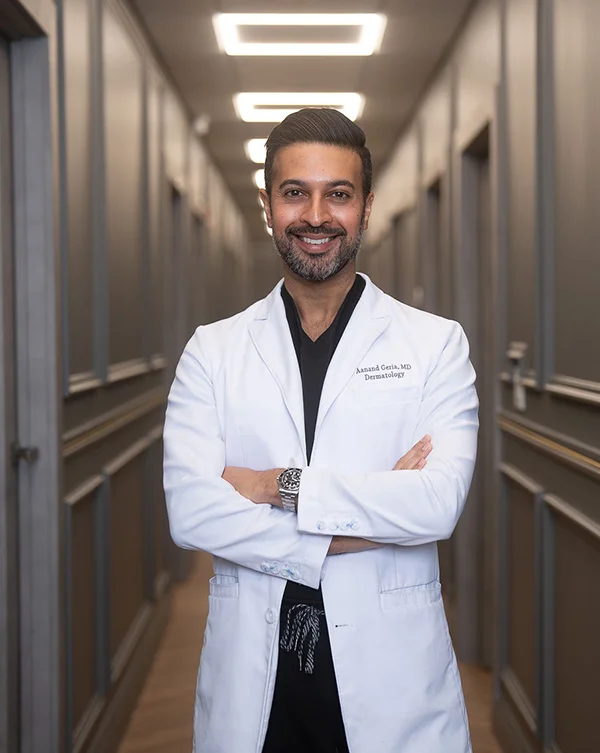What causes Basal Cell Carcinoma?
Most basal cell skin cancers are caused by repeated and unprotected skin exposure to ultraviolet (UV) rays from sunlight, as well as from man-made sources such as tanning beds. UV rays can damage the DNA inside skin cells and cause changes in genes. While many genes will help control how and when our cells grow, divide, and repair mistakes in our DNA, if these genes aren’t working properly, it can lead to cells growing out of control.
While the knowledge of DNA changes is still a mystery to researchers when it comes to basal cell carcinoma development, genes mutated in basal Cell Cancers are usually a part of the signaling pathway inside the tumor suppressor genes that normally help keep cell growth in check. Patients who have basal cell nevus syndrome (Gorlin syndrome) often inherit it from a parent which results in basal cell cancer.
What are common Basal Cell Carcinoma treatments?
When treating basal cell carcinoma, the cancer must be completely removed, however, the kind of treatment you will need depends on the type, location, and size of your cancer, as well as if this is the first-time or recurring. The most common method is surgery in order to remove all of the cancer and some of the surrounding healthy tissue to avoid future incidents. Surgical excision may be required, where the cancerous lesion and a surrounding margin of healthy skin is removed and examined under a microscope to be sure there are no cancer cells. Another technique is Mohs surgery, which is when a surgeon removes the cancer layer by layer, examining each layer under the microscope until no abnormal cells remain. This allows the entire growth to be removed and avoid taking an excessive amount of surrounding healthy skin.
Depending on the severity of the patient’s symptoms and BCC, there might be alternative treatments aside from surgery. Your dermatologist will tailor the most suitable treatment plan based on your individual needs. Please note that some of these treatments my require a referral to a specialist. These techniques may include:
- Curettage and electrodessication (C and E): A “C and E” treatment involves removing the surface of the skin cancer with a scraping instrument (a curett) and then searing the base of cancer with an electric needle.
- Photodynamic therapy: Photodynamic therapy might be considered when surgery isn’t an option and combines photosensitizing drugs and light to treat superficial skin cancers. A liquid drug makes the cancer cells sensitive to light which destroys the skin cancer cells when light is shined on the area.
- Radiation therapy: Radiation therapy uses high-energy beams to kill cancer cells.
- Topical treatments: Prescription creams or ointments might be considered for treating small and thin basal cell carcinomas when surgery isn’t an option.
- Targeted drug therapy: Targeted drug treatments focus on specific weaknesses present within cancer cells. By blocking these weaknesses, targeted drug treatments can cause cancer cells to die and block molecular signals that enable the cancers to continue growing.
- Chemotherapy: One of the oldest techniques to cure cancer, Chemotherapy uses powerful drugs and is often the option when other treatments haven’t helped.

Basal Cell Carcinoma Treatment recovery
Recovery from basal cell carcinoma (BCC) treatment varies depending on the specific procedure. Mohs Surgery may involve wound care, with stitches removed after about a week. Excision recovery also includes wound care, with sutures typically removed within a week as well. Please note that topical therapies can lead to skin irritation, redness, and peeling during treatment.
Post-treatment care instructions are provided by our staff, and follow-up appointments are scheduled as needed. Recovery times may vary based on the procedure and individual factors.
Why choose us?
Why choose
Geria Dermatology?
Geria Dermatology is led by Aanand N. Geria, MD, FAAD, a board-certified dermatologist specializing in medical, surgical, and cosmetic dermatology. He is a Fellow of the American Academy of Dermatology (AAD), a Diplomate of the American Board of Dermatology (ABD), and a member of the American Society of Dermatologic Surgery (ASDS), New Jersey Dermatological Society (DSNJ), and Skin of Color Society.
Since 2018, Dr. Geria has made the Castle Connolly list of “Top Doctors”, an honor awarded by his peers, and is frequently sought out for his input on the latest trends in dermatology as evidenced by his commentary in publications such as Allure, Fashionista, The Zoe Report, Business Insider, and Coveteur. Dr. Geria is one of only 15 dermatologists in the nation to be recognized in both the Medical and Cosmetic categories by Newsweek.


Contact us
Dedicated to Exceptional Services
Schedule your consultation at Geria Dermatology to receive personalized basal cell carcinoma (BCC) treatment from Geria Dermatology. During your consultation, we will assess your condition, discuss treatment options, and create a tailored plan. You’ll have the opportunity to address your concerns and gain a thorough understanding of your BCC treatment journey.
Geria Dermatology’s patient-centric approach ensures you receive the highest quality care in a compassionate environment. Take the first step towards treating BCC by scheduling your consultation with Dr. Geria and his dedicated team.
